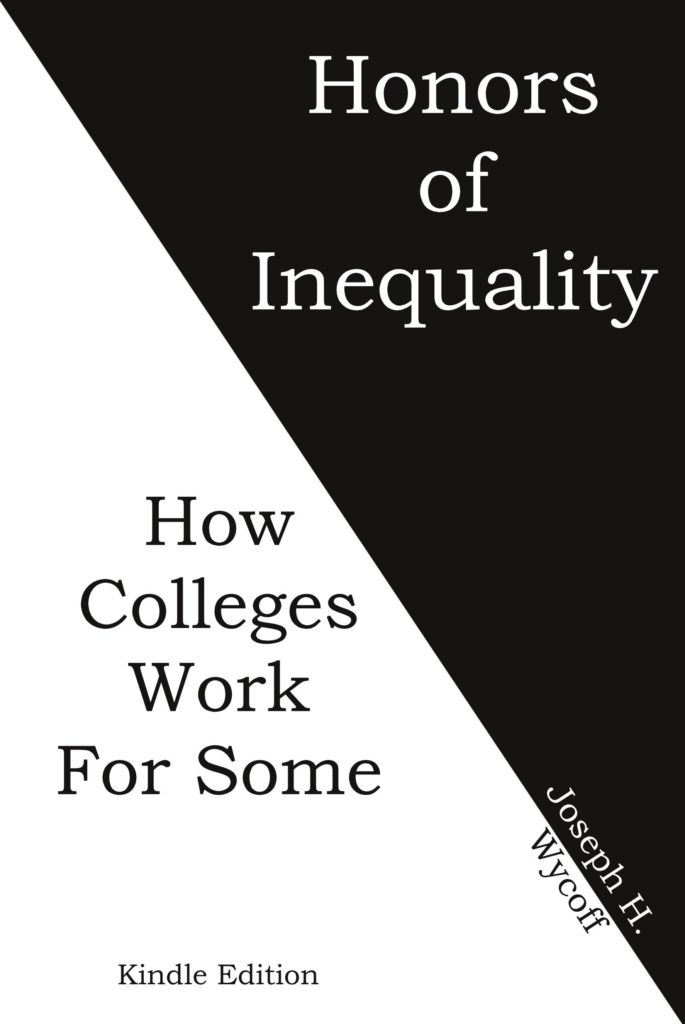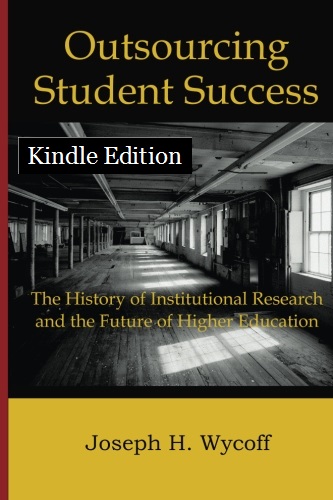| International |
Fifth of graduates ‘make net financial loss’ from university | A study from the Institute for Fiscal Studies (IFS), commissioned by the Department for Education, estimated that the average net lifetime return of an undergraduate degree is £130,000 for men and £100,000 for women, when taking into account taxes, student loan repayments and foregone earnings during study. For both men and women, this represents a gain in average net lifetime earnings of about 20 per cent. The 10 per cent of graduates with the highest returns gain approximately £500,000 on average. However, it calculated that about one in five English students – or about 70,000 every year – makes a net financial loss from attending university.
Veritas Capital Completes Acquisition of Campus Management and Edcentric from Leeds Equity Partners | Veritas Capital (“Veritas”), a leading private investment firm, today announced the completion of its previously announced acquisition of Campus Management Acquisition Corp. (“Campus Management”) and Edcentric Holdings LLC (“Edcentric”) from Leeds Equity Partners, LLC (“Leeds Equity”). Veritas Capital announced the definitive agreement to acquire Campus Management and Edcentric on Jan. 16, 2020. Terms of the transaction were not disclosed. Leeds Equity will continue as an investor in both companies in partnership with Veritas.
It’s not too late to save Brazil’s universities and its democracy | Just a year after this wave of violence and intimidation began, President Bolsonaro gained unprecedented powers to appoint university leadership. More recently, an order issued by the ministry of education has limited the number of researchers allowed to attend overseas conferences, depriving countless scholars of the opportunity to exchange information and ideas. A new report by Scholars at Risk, Free to Think 2019, analyses attacks on higher education in Brazil, and troublingly, shows that they are part of a global phenomenon. Over the past year, for example, authorities in Sudan and Algeria have cracked down on student expression to quash nascent pro-democracy movements, while thousands of academics in Turkey have continued to endure politicised prosecutions for challenging those in power.
From ‘dumb’ decolonisation to ‘smart’ internationalisation | Currently, Africa is home to about 2,000 universities that enrol an estimated 15 to 20 million students who access education through numerous forms of instructional delivery. Some larger countries now have millions of students in their fast-growing higher education sectors. Analysing, articulating and critiquing the state of contemporary African universities in the context in which they were initially conceived and developed – in other words, under the tutelage of colonial entities and paradigms more than half a century ago – ignores the transformational growth and diversity the continent has registered.
| U.S. National |
Who Holds America’s $1.5-Trillion Student-Loan Debt? [subscription required] | Nearly half of the outstanding federal debt is held by borrowers who reported their family income on the Fafsa to be $30,000 or below. Nearly 60% of the outstanding debt is held by Pell Grant recipients. In total, 26.9 million of those borrowers hold federal student loans. 31% of the outstanding debt is held by borrowers who did not complete their degree. This represents 19.7 million people.
Critical theory represents the power, not the corruption, of the humanities | Giving up on the humanities now would be like giving up on democracy. We know that democracy invites pluralism and argument and opinions with which we might vehemently disagree. But if we stop teaching students how to interpret these competing narratives, we will have entered an era even more threatening than the one we are in now…We can live with post-truth. We can’t live with post-analysis, post-criticism, post-interpretation, post-humanities. That would be the real crisis.
Unraveling the Complexity of America’s Student-Loan Debt | Beth Akers, a senior fellow at the Manhattan Institute who focuses on the economics of higher education, put it this way: “The data actually tell us that people who have very large student loan balances are actually doing pretty well. That’s because they have high income that they have access to because of their educational spending…”Akers, of the conservative Manhattan Institute, said she has been disappointed so far in the Democratic candidates’ focus on debt forgiveness and free college. Incremental changes to the existing student-loan repayment programs, she said, would do more to help students repay their debt. [Note: Um, debt forgiveness and free college will do less to help students repay their debt than holding students accountable to the full repayment terms? Uh-huh. Did the Chronicle of Higher Education have to search far and wide to find this policy expert or is it the first business card in the editors’ Rolodex?]
| U.S. States and Territories |
Higher Education Subsidies Do Not Produce Better Educational or Economic Results | A look at the evidence doesn’t show more taxpayer support leads to better educational outcomes whether comparing schools here in Michigan or states across the nation. Lawmakers should spend taxpayer dollars elsewhere.
Research & Commentary: More Education Funding Does Not Improve Education Outcomes [Heartland Instittue, “a free market think tank”] | In an effort to increase education funding in Rhode Island, two state lawmakers have introduced a tax reform plan that would raise taxes on residents earning more than $500,000 annually. The new tax bracket would add 1 percentage point to the 5.99 percent top rate for income earned higher than $500,000. An incremental amount of the new revenue would be directed to a designated account for funding K-12 education…Instead of throwing more money at the problem, Rhode Island residents should demand increased educational opportunities for children and families. [Note: For how many more decades can the phrase, “Instead of throwing more money at the problem,” pose as a serious insight in research and commentary?]
Idaho colleges, universities move forward after budget cuts, tuition freezes | Last fall, all four institutions announced a freeze on in-state undergraduate tuitions for the 2020-21 school year. Idaho already has one of the least expensive in-state tuition costs nationally, ranking eighth lowest in the country with a variability of only a few hundred dollars. However, attending these institutions is still a financial burden to many students, particularly in rural or low-income regions.
Pa. lawmakers urged to act now to save state university system | The leader of Pennsylvania’s system of 14 state-owned universities told lawmakers Tuesday that it is urgent they act to help the schools in the face of sinking enrollment, rising student debt and a lagging commitment of public tax dollars to higher education. The system’s chancellor, Dan Greenstein, urged the House Appropriations Committee to approve legislation that would deliver cash and greater authority to the system over how it spends money and administers the schools.
Finally, a school data system emerging | The education establishment has not pressed for a central data system, apparently fearing that it could, as PPIC suggests, reveal which institutions and programs are “not worth the investment” and thus invite intervention or even elimination. Former Gov. Jerry Brown was adamantly opposed, perhaps because more data might reveal the flaws in one of his central claims to achievement, the Local Control Funding Formula, which spends billions of dollars to raise the academic performance of poor and English-learner students but so far appears to have had little impact. In brief, collecting more data about student outcomes would — and should — be a precursor to more accountability for everyone involved in education.
| Institutional |
Fashion Sense and Sensibility | Much of the criticism for the show was initially directed at Huang, but Joyce Brown, president of FIT, placed the blame squarely on two administrators who, she said in a statement, “failed to recognize or anticipate the racist references and cultural insensitivities that were obvious to almost everybody else.” Jonathan Kyle Farmer, the chair of the master’s program for fashion design, and Mary Davis, dean of graduate studies, were placed on administrative leave as a result. Brown described their leadership as “inexcusable and irresponsible” and apologized “to those who participated in the show, to students, and to anybody who has been offended by what they saw. Let me be clear: no person should be made to feel uncomfortable — particularly about race — in service of their work, job, livelihood, or course of study.”
Why Are Textbooks So Expensive? | Forty-three percent of current and former college students said they have skipped meals to save money for textbooks and course materials, and 85% called textbooks a major source of financial stress, according to a 2018 study conducted by Morning Consult, on behalf of Cengage, one of the major college textbook and digital content companies. (The study surveyed over 1,600 people.) Critics argue that it’s unclear whether new developments in the textbook industry — and a shift toward digital models — are streamlining the process or making it more difficult for students to navigate. Access codes, averaging around $100 each, are one of many symptoms of what appears to be the commercial textbook market’s yearslong push to salvage profits while mitigating soaring costs for students. Textbook prices ballooned by over 1,000% between the 1970s and the mid-2010s.
The College President Who Simply Won’t Raise Tuition | Most of the attention centers on that all-important number, 9,992. Not only is that the dollar amount an in-state student will pay Purdue for tuition and fees next year; it is also the amount such a student paid Purdue when Daniels became university president, in 2013. The university has also reduced the price of food services and textbooks. An undergraduate degree from Purdue, in other words, is less expensive today than it was when Daniels arrived.


